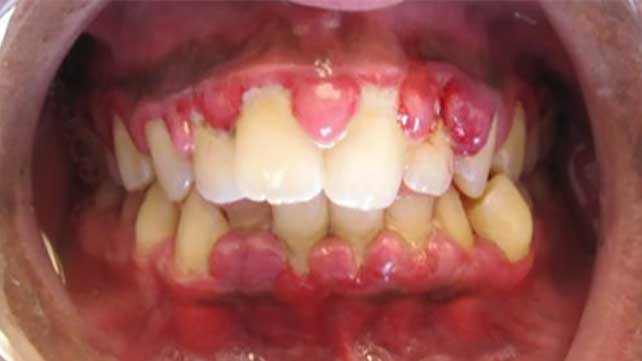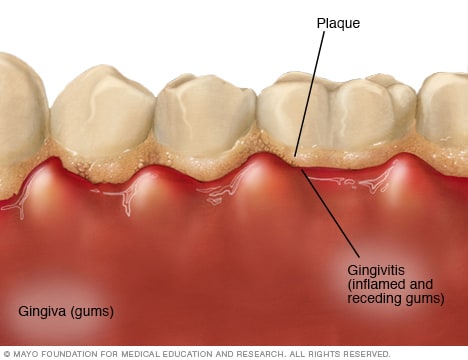
Swollen gums are a common condition that can be caused by a variety of factors. It’s best to visit a dentist if you notice that your gums are swollen and tender. In some cases, these symptoms can also be caused by poor oral hygiene, such as eating crunchy foods and not brushing your teeth thoroughly. Other causes of swollen or tender-looking lips include alcohol, tobacco, and mouthwashes. To prevent a swollen gum, you should switch your toothpaste brand or stop using mouthwash. If you have a serious issue, you should visit a doctor to get a prescription for a treatment.
If you have swollen gums, you should seek a dentist for treatment. Regular cleanings are very important to maintaining gum health. However, if your condition has become chronic, you should try a treatment to reduce inflammation. It may also be a good idea to consult a dental insurance plan. This will help you find the most affordable treatment options for swollen and tender teeth. There are also many products available that can help relieve your pain.
Swollen gums can be uncomfortable and irritating. If they persist, you should visit a dentist. Your dentist can perform a full mouth dental X-ray to diagnose the cause of the swelling. During this appointment, your dentist may also ask you if you’re pregnant or have changed your diet recently. Some doctors may recommend specific toothpaste and oral rinses to help reduce plaque. If the symptoms have gotten worse, your dentist may prescribe antibiotics.
Depending on the type of swollen gums, your dentist may suggest a few home remedies for the symptoms. One popular home remedy for swollen gums is hydrogen peroxide. It’s a solution of three percent hydrogen peroxide and three tablespoons of water. Mix the two solutions and swish around your mouth for 30 seconds. Make sure that you don’t swallow the solution.
A general dentist will be able to determine the exact cause of your swollen gums. They may order dental x-rays and blood tests to determine the exact cause. Depending on the underlying problem, they may recommend a specific toothpaste or oral rinse. If an infection is the root cause of the gum swelling, they may prescribe antibiotics. In severe cases, root planing will be necessary to remove tartar on the roots of the teeth.

In some cases, swollen gums are the result of an infection that is present in the mouth. In these cases, a general dentist may perform tests to find the cause of the swollen gums. A dental x-ray can be a helpful tool in diagnosing a dental infection. A general dentist will also perform an oral rinse to remove plaque. Afterwards, a patient should be given an antibiotic to fight off the underlying infection.
Aside from undergoing a dental exam, swollen gums can also cause pain. Those who suffer from this condition should consider visiting a dentist for treatment to address the discomfort and prevent further damage to their gums. It is best to seek care for a swollen and painful mouth as early as possible, as it can cause serious problems. The first step in treating swollen and painful gums is to remove plaque. Salt water, hydrogen peroxide solution, and regular brushing will help you remove bacteria and get rid of harmful bacteria from your mouth.
A general dentist will evaluate the cause of swollen gums and recommend treatment based on the results. The dentist will examine the patient’s mouth, medical history, and symptoms to determine the underlying cause of the swelling. Once the dentist has determined the underlying cause, he or she can begin to treat the symptoms. If symptoms persist after a dental exam, he or she will prescribe an antibiotic if necessary.
A dental x-ray is a valuable tool in diagnosing swollen gums. In many cases, a dentist can prescribe medicine for swollen gums, which will reduce inflammation and soreness. Sometimes the treatment for swollen gums will involve a homeopathic method. The solution can be found on the health website https://www.somosmass99.com.mx/. It can be used by patients who do not have access to a general dentist.
